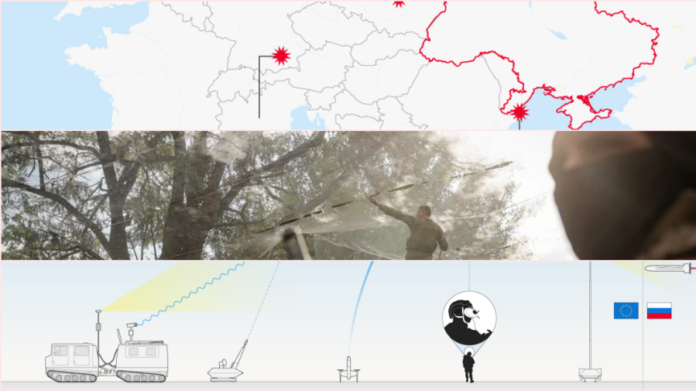The Republic of Moldova has intensified its cooperation with NATO and the European Union in recent years, particularly in response to new regional security challenges. Authorities in Chisinau and NATO representatives consistently emphasize that they conduct these relations with full respect for Moldova’s constitutional neutrality.
On October 15, 2025, NATO defense ministers agreed to implement additional measures to strengthen the Alliance’s capacity to counter drone threats. The North Atlantic Council adopted the decision after recent incursions by the Russian Federation into Allied airspace.
“The new measures provide for testing integrated anti-drone defense systems as part of the defensive mission ‘Eastern Sentry,’ launched by NATO in September after several Russian drones violated Polish airspace,” reported the NATO Liaison Office in the Republic of Moldova.
In October 2025, the British Government announced that it will send a contingent of military experts specialized in counter-drone operations to Moldova. British Secretary of Defense John Healey stated at the NATO defense ministers’ meeting in Brussels that the experts will assess the needs of Moldovan armed forces and assist in developing anti-drone tactics. Healey also emphasized that the United Kingdom has delivered over 85,000 drones to Ukraine in the past six months and partnered with industry to rapidly develop thousands of interception drones capable of neutralizing Russian attacks, creating jobs in both the UK and Ukraine.
NATO Secretary General Mark Rutte confirmed at the Brussels summit that NATO cooperates closely with Moldova. He emphasized that the Alliance supports Moldovan authorities whenever they request assistance. Rutte also highlighted that the European Union maintains close cooperation with Moldova, and individual allies contribute support as needed.

Maria Arama, Head of the Information and Media Communication Service at Moldova’s Ministry of Defense, confirmed that British experts do not operate as foreign troops on Moldovan territory. She clarified that they provide technical cooperation and expertise while fully respecting Moldova’s neutral status. Arama added that Moldova has collaborated efficiently with the United Kingdom and other external partners for many years to strengthen its defense capabilities. Representatives of the British Embassy in Chisinau confirmed that Moldova and the United Kingdom maintain a strong, long-term partnership in defense and security.
Authorities and allies have cooperated in multiple areas, including cybersecurity, critical infrastructure and hybrid threat resilience, non-lethal assistance, professional training for personnel in public services and security institutions, joint exercises, improving interoperability, and practical cooperation.
Thus, Moldova defines its relationship with NATO and the European Union as a pragmatic partnership of a civilian and technical nature rather than a military commitment. Cooperation strengthens democratic institutions, protects vital infrastructure, and enhances Moldova’s response capacity to current threats—all while fully upholding the constitutional principle of state neutrality.


